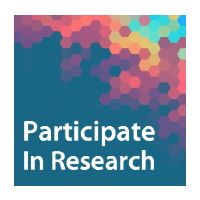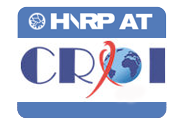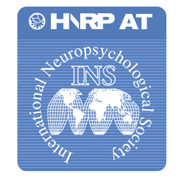Uncategorised
Uncategorised
Study Recruitment
The HIV Neurobehavioral Research Program (HNRP) at the University of California San Diego (UCSD) is conducting research into the effects and treatments of HIV infection and co-occurring conditions (for example, Hepatitis C).
You may be eligible to participate in one or more of these research studies. Benefits of participation vary but may include test results, treatments and/or compensation. All personal information is strictly confidential. Study participation is voluntary.
For further details about any of our studies, please call (619) 543-5000 and ask to speak with a recruiter.
HNRP at 2022 CROI
The Conference on Retroviruses and Opportunistic Infections (CROI) was established in 1993 to provide a forum for basic scientists and clinical investigators to present, discuss, and critique their investigations into the epidemiology and biology of human retroviruses and associated diseases. The synergy of basic science and clinical investigation has been a major contributor to the success of the meeting. CROI has facilitated the presentation of important discoveries in the field, thereby accelerating progress in HIV and AIDS research. As always, the best and most consequential original research in HIV, hepatitis viruses, SARS-CoV-2, and other viral infections and their related conditions defines the science at CROI.
RRC 1/5/17
Research Review Conference
Thursday, January 5th, 2016
9:30 – 11:00 a.m.
Call-in Information: Number: (866) 740-1260; Access Code: 5434749
9:30 am Proposal: Effect of HIV and smoking on nicotine system function and cardiovascular risk – Brook Henry, PhD, UC San Diego
10:30 am Publications Update
10:45 am Current funding opportunities
Upcoming Scientific Meetings and Abstract Deadlines
|
Conference |
Location |
Date |
Abstract Due |
|
International Neuropsychological Society |
New Orleans, LA |
Feb 1-4, 2017 |
Passed |
|
Conference on Retroviruses and Opportunistic Infections (CROI) |
Seattle, WA |
Feb 13 – 16, 2017 |
Passed |
|
The Society for Behavioral Medicine (SBM) http://www.sbm.org/meetings/2017 |
San Diego, CA |
Mar 29 – Apr 1, 2017 |
LB 2/28/2017 |
|
Society for Biological Psychiatry (SOBP) |
San Diego, CA |
May 18 – 20, 2017 |
LB 2/8/2017 |
|
American Psychiatric Association (APA) |
San Diego, CA |
May 20 – 24, 2017 |
Passed |
Current Funding Opportunity Announcements
|
Multidisciplinary Studies of HIV/AIDS and Aging (R01) |
9/8/18 |
|
|
Innovative Technologies and Assays in Support of HIV Cure Research (ITAS-Cure) (R43/R44) |
9/8/18 |
|
|
Drug Abuse Dissertation Research (R36) |
9/8/18 |
|
|
Strengthening Adherence to Antiretroviral-Based HIV Prevention and Treatment (R01) |
1/8/17 |
|
|
Women & Sex/Gender Differences in Drug and Alcohol Abuse/Dependence (R01) |
5/8/17 |
|
|
Substance Use and Abuse, Risky Decision Making and HIV/AIDS (R01/R21) |
5/8/17 |
|
|
Multidisciplinary Studies of HIV and Viral Hepatitis Co-Infection (R21/R01) |
5/8/17 |
Future RRC Topics
If you would like to present at an upcoming RRC meeting, please email Dr. Mariana Cherner at This email address is being protected from spambots. You need JavaScript enabled to view it. or Ariel Brinkerhoff at This email address is being protected from spambots. You need JavaScript enabled to view it..
|
January |
|
|
12 |
TMARC Overflow |
|
19 |
No RRC - COI |
|
26 |
|
Get Involved

Get Involved
- Participate in HIV/AIDS Research
- Donate to AIDS Research Foundations
- Educate your friends, family and partners
- Volunteer
Get Tested

Get Tested
The sooner you know your status, the quicker you can do something about it.
- The Early Test is offered by UCSD AVRC – contact them at (619) 543-8080 to book advance appointments.
- County Health Services Complex (Rosecrans) - Blood and rapid testing available
3851 Rosecrans St., Suite S, San Diego, CA 92110
(619) 692-8550
Mondays, Tuesdays & Fridays: 7:30 am - 4 pm
Wednesdays: 11 am - 7 pm
Thursday: 10 am - 4 pm
- Central Region Public Health Center - Blood and rapid testing available
5202 University Ave., San Diego, CA 92105
(619) 229-5400
Tuesday: 1 pm - 7 pm
Friday: 10 am - 4 pm
- South Region Public Health Center - Blood testing only
690 Oxford St. Chula Vista, CA 91911
(619) 409-3110
Thursdays: 12 pm–6 pm
- North Coastal Public Health Center - Blood testing only
104 South Barnes St., Oceanside, CA 92054
(760) 967-4401
Wednesdays: 12:30 pm–7:30 pm
- San Diego LGBT Community Center
3909 Centre Street, San Diego, CA 92103
(619) 692-2077
Mondays and Wednesdays: 9 am - 2 pm (County of San Diego anonymous HIV testing)
Tuesdays and Thursdays: 9 am - 3:15 pm (UC San Diego HIV Testing)
Fridays: 9 am - 1:45 pm (UC San Diego HIV Testing)
Get Safe

Get Safe
- Know your own HIV status
- Know your partner’s HIV status
- Create an open communication
- Use condoms (female or male)
- Limit your number of sexual partners
- Talk to your doctor about pre-exposure prophylaxis (PrEP). PrEP involves taking HIV medication everyday and intended for those who don’t have HIV but are at high risk of acquiring the infection.
- Avoid drugs, which can lead to risky behavior. If you can’t avoid drugs, don’t share needles.
Get Knowledgeable

Get Knowledgeable
- HIV is spread through contact with the blood, semen, pre-seminal fluid, vaginal fluids, rectal fluids and breast milk from a person infected with HIV.
- HIV can also be spread through sharing drug injection equipment, such as needles, with someone who has HIV.
- Although not to be confused with cure, treatment is available to prolong lives. HIV medication is called antiretroviral therapy, or ART for short.
In the United States
- More than 1.2 million people in the United States are living with HIV infection, and almost 1 in 7 (14%) are unaware of their infection.[1]
- Gay, bisexual, and other men who have sex with men (MSMa), particularly young African-American MSM, are most seriously affected by HIV.[1]
- African-Americans face the most severe burden of HIV.[1]
- There are about 50,000 new HIV infections per year[2]
- Females are affected too.
- Americans aged 50 and older have many of the same HIV risk factors as younger Americans.
- People aged 55 and older accounted for 26% (313,200) of the 1.2 million estimated HIV infections in the US in 2011.
- In 2010, 44% (1,100) of the estimated 2,500 new HIV infections among people aged 55 and older were among gay, bisexual, or other men who have sex with men (MSM).[4]
Global
- Since the beginning of the epidemic, almost 78 million people have been infected with the HIV virus and about 39 million people have died of HIV[5].
- Globally, 35 million people were living with HIV at the end of 2013[5].
- Sub-Saharan Africa remains most severely affected, with nearly 1 in every 20 adults living with HIV and accounting for nearly 71% of the people living with HIV worldwide[5]
- Heterosexual intercourse remains the epidemic‘s main driving force in sub-Saharan Africa, unlike in the rest of the world where HIV disproportionately affects injecting drug users, commercial sex workers, and men who have sex with men[6].
References Cited
1. Center for Disease Control and Prevention. CDC - Fact Sheets - Resource Library - HIV/AIDS. 2012 [cited 2015 May 12]; Available from: http://www.cdc.gov/hiv/library/factsheets/index.html.
2. Center for Disease Control and Prevention, Estimated HIV incdience in the United Sttes, 2007-2010. HIV Surveillance Supplemental Report, 2012. 17(No. 4): p. 5. PMC
3. Center for Disease Control and Prevention, Estimated HIV incdience in the United Sttes, 2007-2010. HIV Surveillance Supplemental Report, 2012. 17(No. 4): p. 6. PMC
4. Center for Disease Control and Prevention. HIV Among People Aged 50 and Older. 2015 April 12, 2015 [cited 2015 May 12]; Available from: http://www.cdc.gov/hiv/risk/age/olderamericans/index.html.
5. World Health Organization. HIV/AIDS. 2015 [cited 2015 May 12]; Available from: http://www.who.int/gho/hiv/en/.
6. Vinod Mishra, Agrawal Praween, Soumya Alva, Yuan Gu, and Shanxio Wang, Changes in HIV-Related Knowledge and Behaviors in Sub-Saharan Africa. DHS Comparative Reports, 2009. 24: p. 2. PMC











 Several HNRC Investigators present their findings at the NIMH Biotypes of CNS complications in people living with HIV meeting held on October 21-22, 2021.
Several HNRC Investigators present their findings at the NIMH Biotypes of CNS complications in people living with HIV meeting held on October 21-22, 2021.